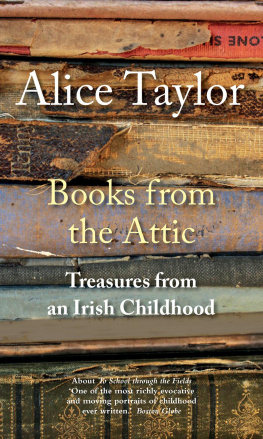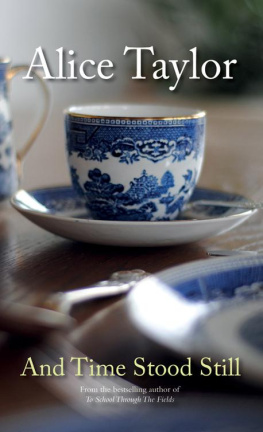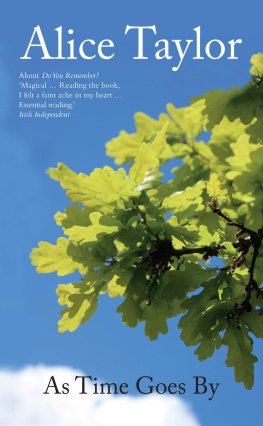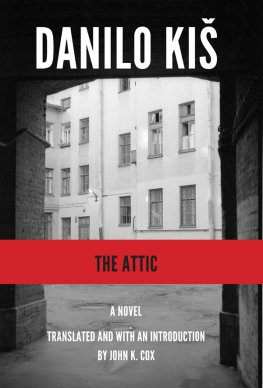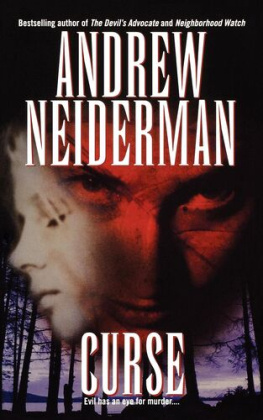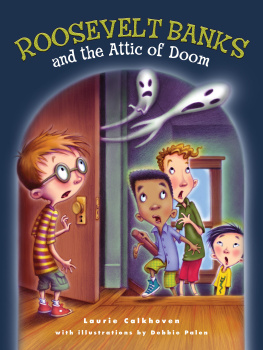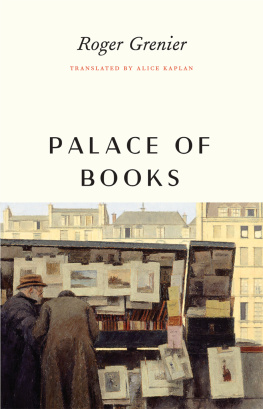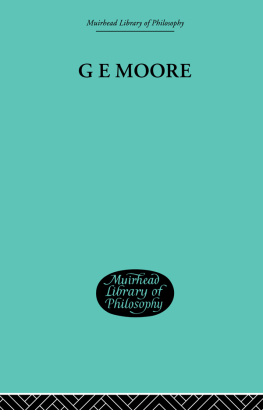Alice Taylor - Books from the Attic
Here you can read online Alice Taylor - Books from the Attic full text of the book (entire story) in english for free. Download pdf and epub, get meaning, cover and reviews about this ebook. year: 2020, publisher: The OBrien Press, genre: Home and family. Description of the work, (preface) as well as reviews are available. Best literature library LitArk.com created for fans of good reading and offers a wide selection of genres:
Romance novel
Science fiction
Adventure
Detective
Science
History
Home and family
Prose
Art
Politics
Computer
Non-fiction
Religion
Business
Children
Humor
Choose a favorite category and find really read worthwhile books. Enjoy immersion in the world of imagination, feel the emotions of the characters or learn something new for yourself, make an fascinating discovery.
- Book:Books from the Attic
- Author:
- Publisher:The OBrien Press
- Genre:
- Year:2020
- Rating:5 / 5
- Favourites:Add to favourites
- Your mark:
- 100
- 1
- 2
- 3
- 4
- 5
Books from the Attic: summary, description and annotation
We offer to read an annotation, description, summary or preface (depends on what the author of the book "Books from the Attic" wrote himself). If you haven't found the necessary information about the book — write in the comments, we will try to find it.
Books from the Attic — read online for free the complete book (whole text) full work
Below is the text of the book, divided by pages. System saving the place of the last page read, allows you to conveniently read the book "Books from the Attic" online for free, without having to search again every time where you left off. Put a bookmark, and you can go to the page where you finished reading at any time.
Font size:
Interval:
Bookmark:
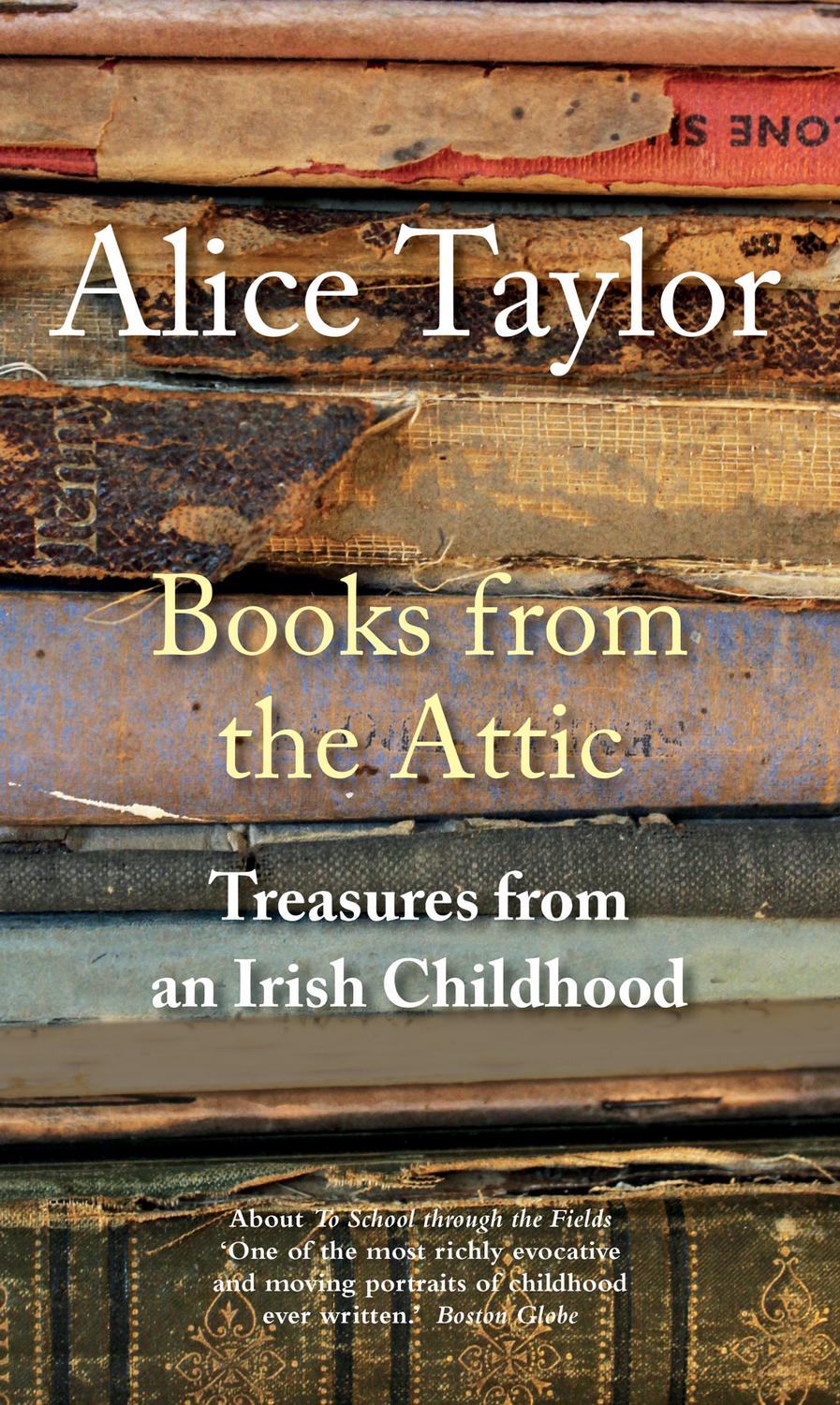
About Alice Taylors other books
To School through the Fields
One of the most richly evocative and moving portraits of childhood ever written. Boston Globe
A delightful evocation of Irishness and of the authors deep-rooted love of the very fields of home with its rituals and local characters Publishers Weekly
Do You Remember?
magical reading the book, I felt a faint ache in my heart I find myself longing for those days this book is important social history remembering our past is important. Alice Taylor has given us a handbook for survival. In fact, it is essential reading Irish Independent
For more books by Alice Taylor, see www.obrien.ie

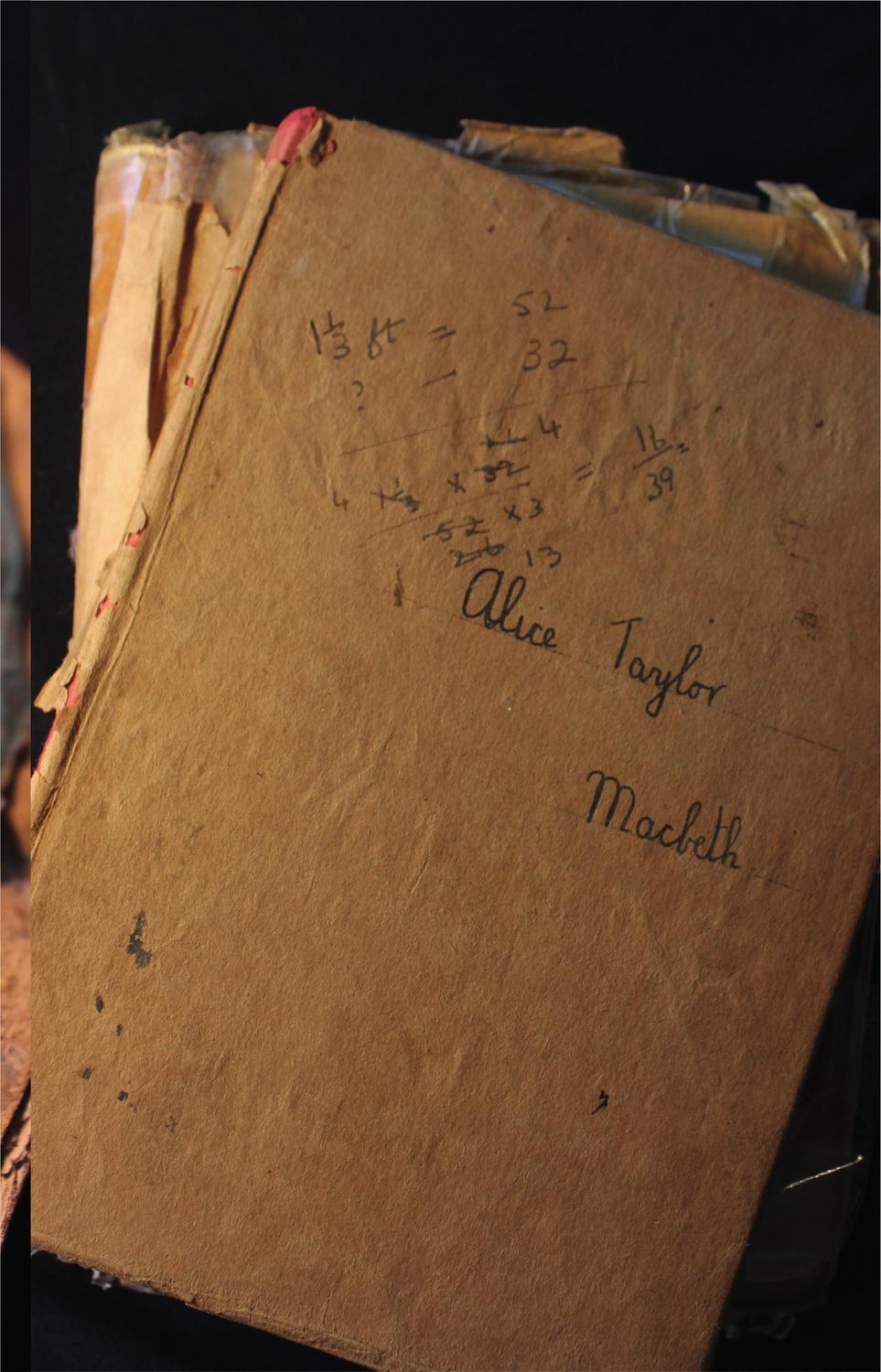
In gratitude to Mom, Gabriel and Con, who had the wisdom and foresight to hoard this treasury of old books, which made the writing of this book possible.
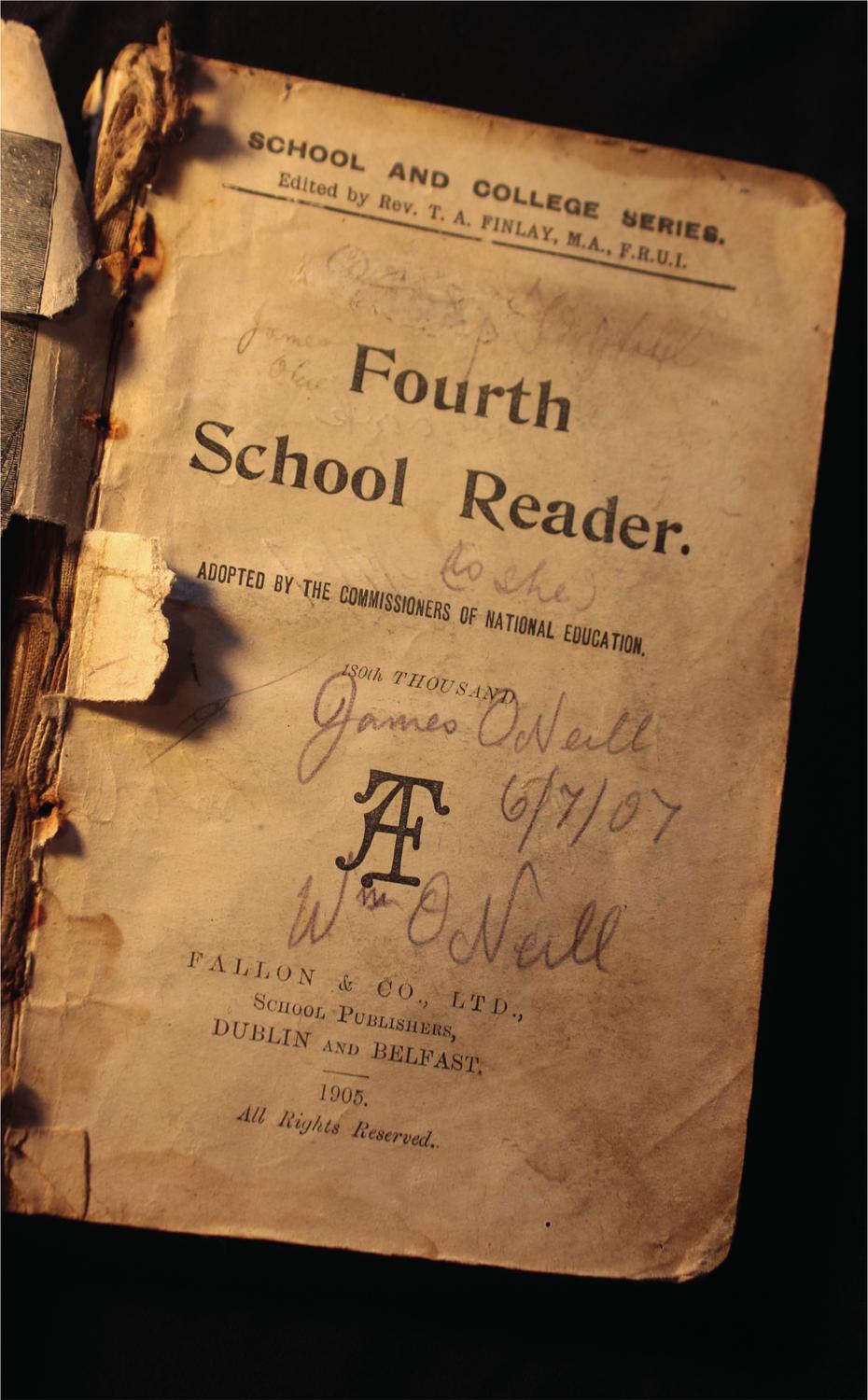
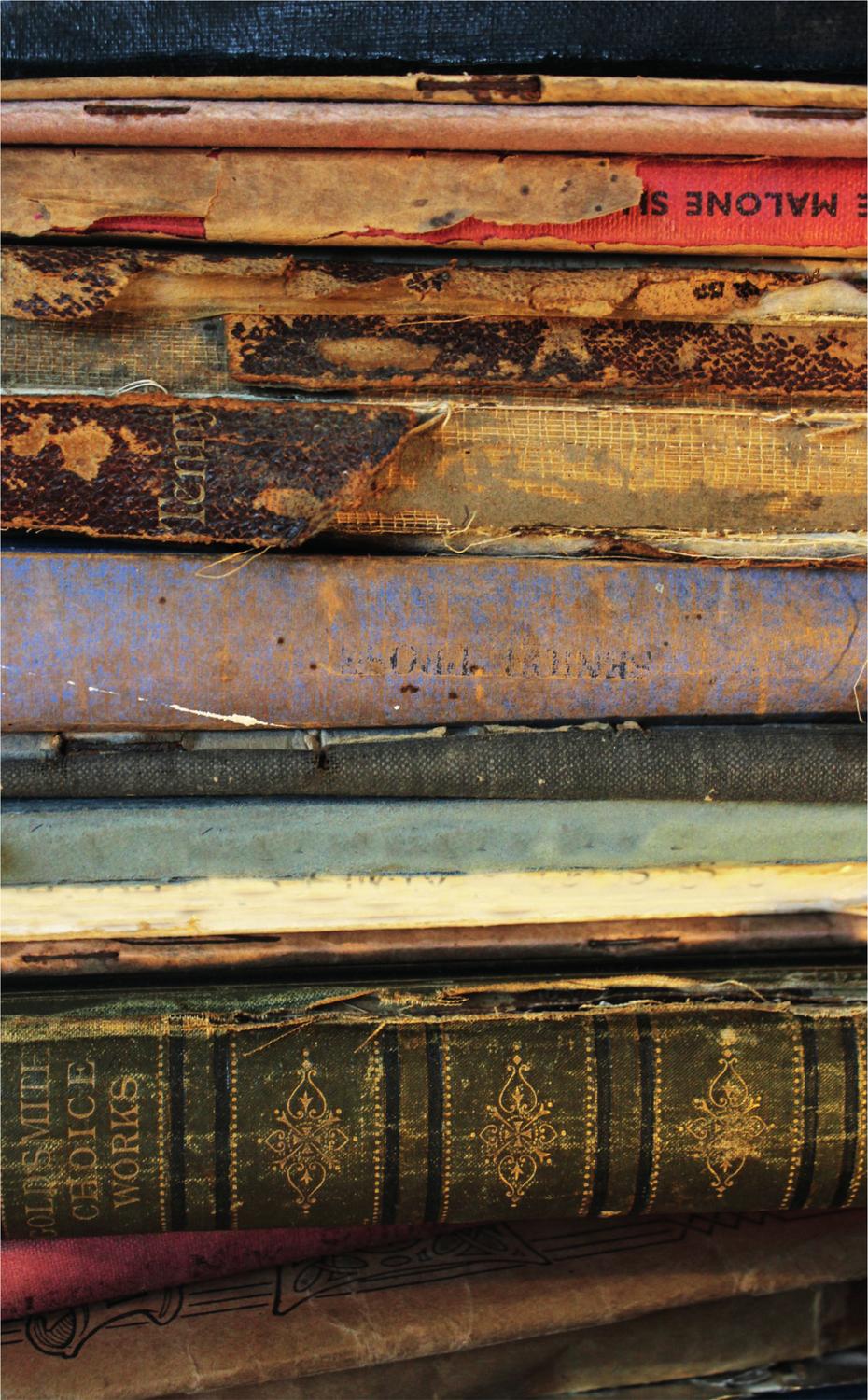
W elcome to my attic! A family of old friends lives up here. Over the years they crept silently up the steep, narrow stairs, gently eased open the creaking door and slipped in quietly. They made themselves comfortable and now have earned their right of residence. When my life downstairs was frantic with the demands of business and small children they reached down with welcoming arms and raised me up. Up here in the restful silence they fostered and encouraged my first tentative steps into the world of writing. These comforters were handed on to me by family hoarders who had cherished and loved them for decades. Now they are my protgs and I would like to introduce them to you, and you may be pleasantly surprised to be reunited with some long-forgotten friends, and hopefully make new ones.
My mother was a hoarder and kept all our schoolbooks. My husband Gabriel was another hoarder who kept his schoolbooks. My cousin Con, who became part of our family, was an extreme hoarder and brought all his old schoolbooks with him when he came to live in our house. So a deep drift of old schoolbooks was building up and would eventually swirl in my direction.
In the home place, my mother stored all our old schoolbooks up in a dark attic that was christened the black loft because in those pre-electricity days only faint rays of light penetrated its dusty depths under the sloping roof of our old farmhouse. Gabriel stored his in a recess under the stairs, which he had cordoned off from our destructive offspring. You entered his mini library via a handmade little door secured with a bolt above child-level access. An adult gaining entry to this literary archive then had to genuflect and go on all-fours to reach the shelves in the furthest corners. Con stored his books under his bed and on shelves all around his bedroom, until the room resembled a kind of beehive of books. When these three much-loved family members climbed the library ladder to the heavenly book archives, I became the custodian of all these old schoolbooks.
My sister Phil sorted out our mothers collection of a lifetime, brought them from the home place and landed a large box of books on my kitchen table with the firm instructions: You look after these now. We went through them with Ohs and Ahs of remembrance. In the box was a miscellaneous collection of moth-eaten, tattered and battered-looking schoolbooks. Amongst them was a book that had belonged to our old neighbour Bill, who had gone to school with my father. It was somehow uncanny that here was a reminder of Bill, who, every night during our childhood all those years ago, came down from his home on the hill behind our house and taught us our lessons. He was a Hans Christian Andersen who loved children and had the patience of Job, so he was the ideal teacher and we loved him dearly. He spent long hours teaching us our lessons; one night he spent over an hour patiently trying to drum the spelling of immediately into my heedless head. All the books eventually found their way up into my attic with promises of: Some day, some day! Isnt life littered with good intentions!
For many years all these old books remained stored away in the attic, gathering dust. Occasionally when I was up there rummaging through miscellaneous abandoned objects looking for something else, I would come across one of them. Planning just a quick peep inside, I was still there half an hour later, steeped in memories. These impromptu sessions transported me back into the world of To School through the Fields.
That first peep into a book sometimes led to a search through others along the shelves, looking for another where a half-remembered poem or some lessons I half-recalled might be hidden. Having found that other book, the nearest chair was sought and a journey back down memory lane ensued. This sometimes provided a welcome break in a then busy schedule downstairs and there was deep satisfaction in these stolen moments.
There and then the promise would again be made that one day all these old schoolbooks would be gathered together and sorted out. I owed it to my mother, to Gabriel and to Con, who had all so carefully preserved them and entrusted their future to me. Unfortunately, it never happened. But lodged at the very back of my mind was the thought that one day when I too would climb the golden library ladder all these old books could well finish up in a skip! A terrible thought! But if I, who knew and loved the history of these books did nothing with them, how could I expect someone who had no nostalgic connection with them to do what I had failed to do? But after these episodes it was back on the conveyor belt of a busy life, which flattens us all. But sometimes life has a funny way of working things out in spite of us and as time evolves it comes up with its own solutions. And so it was with this collection of old schoolbooks.
On recent long car journeys, my grand-daughter Ellie, aged seven, and I are back-seat passengers, and these journeys invariably evolve into storytelling sessions. And one day I said to Ellie: I think that I have become your Gobn Saor. Nana, whats a Gobn Saor? she inquired.
Now, there are many stories about the Gobn Saor, I told her, but probably the correct one is that he was a very good mason who worked for free or very cheaply, was skilled at building, and always managed to get his due, whatever the circumstances. But my favourite story about him is this. And so I told her my version of the Gobn Saor story, in which he is a man who loved storytelling. She loved it.
Long, long ago there was a Gobn Saor who had a large kingdom and three sons. He had to make a big decision. He had to make up his mind to which of his three sons he would leave his kingdom. This was a very big decision. So one day he took the eldest son and some of his courtiers on a long, long journey and when they were all getting weary he asked his son: Son, shorten the road for me. The son looked at him in surprise and protested: Father, how can I shorten the road for you? I cannot cut a bit off it. So they continued on in silence.
Font size:
Interval:
Bookmark:
Similar books «Books from the Attic»
Look at similar books to Books from the Attic. We have selected literature similar in name and meaning in the hope of providing readers with more options to find new, interesting, not yet read works.
Discussion, reviews of the book Books from the Attic and just readers' own opinions. Leave your comments, write what you think about the work, its meaning or the main characters. Specify what exactly you liked and what you didn't like, and why you think so.

